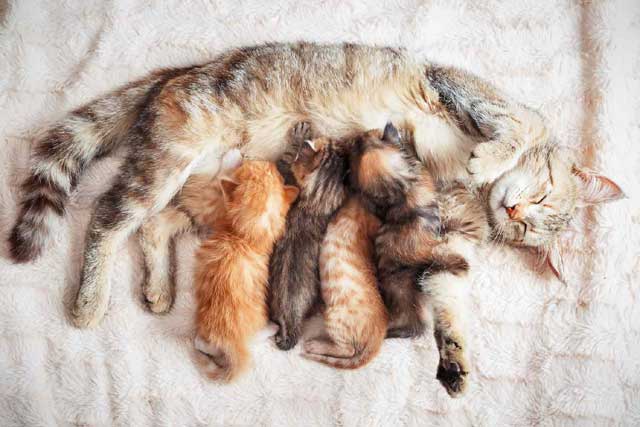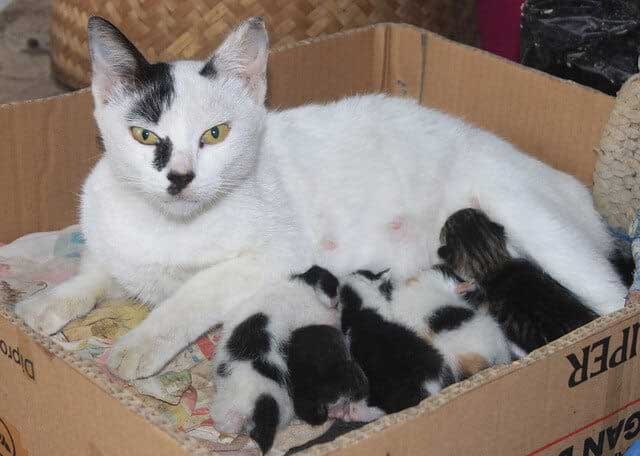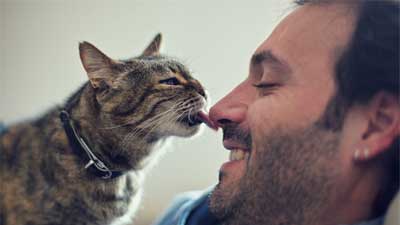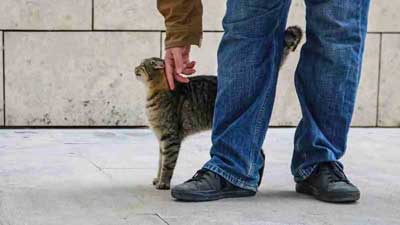How Do I Stop My Cat From Relocating (Moving) Kittens?

You’re a proud new cat owner, and you recently discovered that your cat is pregnant! But wait – what happens if my cat moves her kittens? Moving their kittens before they’re old enough to be on their own is something that some mother cats do, and there are several reasons why. For example, your cat might be moving her kittens to keep them safe from their father or other outside factors, or she might not have enough room to keep them. Here are five proven methods you can use to stop your mother cat from moving her kittens!
Why do mother cats move their kittens?
Although domestic cats have now become accustomed to life in the lap of luxury, they still retain many of the instincts developed when their ancestors were wild creatures. Mother cats move their kittens from one place to another for a variety of reasons, including:
• The nest area is too noisy for cats
• The nest area is too bright
• There are too many human visitors
• One kitten is sick, and she removes them from the litter
• The nest area is dirty
• Mother cat feels threatened
How to stop your cat from moving her kittens
If your cat is moving her kittens and the location that she has chosen is appropriate, there are several things you can do to encourage her to keep the kittens where they are right now. One or a combination of the following may be effective.
1. Handle the kittens as little as possible

While it may be hard to resist picking up your adorable new kittens, don't do it. Your mother cat should be doing a great job of looking after her kittens, and as long as she has a clean nest and access to food, water, and her litter tray, she needs minimal supervision.
The mother cat may feel threatened if many people come to see the kittens and pick them up. In addition, her scent may be lost as the kittens are handled, leaving her feeling confused. In this case, she may decide to move the kittens to a place where she’s less likely to be disturbed.
Don’t let people visit the kittens until they’re at least 4 weeks old, and keep human contact to a minimum. Then, as the kittens start moving around and exploring on their own, the mother cat will become more relaxed and accepting of people visiting her babies.
2. Keep the nest area as quiet as possible

As soon as you notice your cat is expecting kittens, start thinking about where she might want to make her nest. Most cats prefer quiet places with low light levels and not too many people around. While your cat will find a spot on her own, there may be a better location for you to watch over her and the kittens. You can persuade her to choose a place that suits both of your needs.
If your cat has decided to build her nest somewhere inappropriate, try to make the area as quiet and calm as possible instead of removing it. Keep other pets away from her nest. You can even build a frame or place her nest inside a large crate. Cover it with blankets to add extra privacy and warmth.
3. Check the health of the mother cat and kittens

A mother cat will often move a single kitten if she senses that the kitten is ill. So if you notice your cat's mother picking up one kitten out of the nest rather than trying to move the whole litter, she may have sensed that something isn’t right with that particular kitten.
If you are at all concerned about the health of your cat or her kittens, it's a good idea to call your vet. They may do an initial consultation over the phone or ask to examine the mother cat and kittens in person.
Mother cats can get sick, and any of these illnesses may cause her to move her kittens. Mastitis is an infection of the mammary glands and is painful. She will need antibiotics; kittens could be bottle-fed while she recovers. Hypocalcemia happens when mother cats don’t get enough calcium. It can cause panting, muscle tremors, staggering, and seizures. Uterine metritis is an infection that leads to fever, lethargy, decreased milk production, and a bad-smelling discharge from your cat’s uterus. She will need immediate veterinary care.
4. Make sure the nest is warm

Newborn kittens can’t regulate their own body temperature, so it is important to keep them warm. If there are drafts where your mother cat has made her nest, then she may decide to move it to a warmer place. Check that doors and windows are kept shut. You might even consider adding a thermometer to the room so you can keep an eye on the temperature.
5. Keep the nest clean

Cats instinctively seek out clean environments for their young. Any strong smell might attract predators, which could endanger the lives of her kittens. Cats may clean their nest when it becomes dirty and move to a cleaner spot if necessary.
During your daily check, remove any soiled blankets, clean the litter box thoroughly, and make sure spilled food is cleared away. Cleaning up this way will keep the nest and surrounding area as clean as possible, which may encourage the mother cat to stay in the same spot.
Sometimes allowing a cat to move the nest is the only option
If your cat is determined to move her kittens, you may not be able to stop her. If she thinks that moving them is the best way to protect them, she may become stressed if they can't be moved. If you've tried all these methods and she's still convinced that moving her kittens is the way to go, you may just need to accept it.
If you’re sure the new location isn’t dangerous, You can help your cat by providing new clean bedding, moving her food and water bowls, and even carrying some of her kittens to their new nest.
You May Also Like
 Cat BehaviorThe 6 Most Common Reasons Behind Your Cat's Tongue Baths
Cat BehaviorThe 6 Most Common Reasons Behind Your Cat's Tongue Baths Cat BehaviorPossible Reasons for Cat Slapping You With Her Tail
Cat BehaviorPossible Reasons for Cat Slapping You With Her Tail Cat Behavior5 Reasons Why Your Cat Sleeps Next to You
Cat Behavior5 Reasons Why Your Cat Sleeps Next to You LifestyleOwning A Cat Is Prone To These 6 "Weird Problems"
LifestyleOwning A Cat Is Prone To These 6 "Weird Problems" Help & AdviceKittens With These 7 Characteristics Cannot Be Bought And Adopted
Help & AdviceKittens With These 7 Characteristics Cannot Be Bought And Adopted Cat BehaviorIf The Cat Is Well Raised, There Will Be These 6 Behaviors!
Cat BehaviorIf The Cat Is Well Raised, There Will Be These 6 Behaviors!